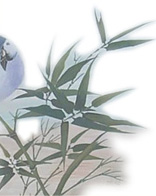|
 Listen to Shirley Singing the Poem in English July 04, 2010 Listen to Shirley Singing the Poem in English July 04, 2010
 Listen to Shirley Singing the Poem in Chinese July 04, 2010 Listen to Shirley Singing the Poem in Chinese July 04, 2010
 Listen to Shirley Explaining the Poem July 5, 2010 & Follow Me to Read It & the New Words Listen to Shirley Explaining the Poem July 5, 2010 & Follow Me to Read It & the New Words
 Read Shirley's Comments about This Poem July 4, 2010 Read Shirley's Comments about This Poem July 4, 2010
 See Shirley Created Paintings and Calligraphy for the Poem July 03, 2010 See Shirley Created Paintings and Calligraphy for the Poem July 03, 2010
 Today, I would like to introduce a new Chinese classical poem ? Bie Dongda ? A Farewell Song For Dongda by Gao Shi (704 - 765) who was a poet and one of the 10 Jie Du Shi - a governor who was in charge of both civil and military things in one or more provinces in Tang Dynasty (618 - 907). Today, I would like to introduce a new Chinese classical poem ? Bie Dongda ? A Farewell Song For Dongda by Gao Shi (704 - 765) who was a poet and one of the 10 Jie Du Shi - a governor who was in charge of both civil and military things in one or more provinces in Tang Dynasty (618 - 907).
As the only poet who was on this position in his times, with a very positive life attitude, Gaoshi had written a lot of long poems to appreciate the landscape of the frontier and the war fields. He was one of the most important and representative poets of heroism genre of Tang Dynasty in Chinese literature or poetry history.
This is a Juju - a poem of four lines, each containing of five or seven characters, with a strict tonal pattern and rhyme scheme. It was written for his good friend Dong Da --Dong Lanting who was a famous musician before he left for his traveling.
As a small send-off poem, instead of writing it as a sad one as many poets did, Gao Shi made it full of the confidence and encouragement with an optimistic emotion. :-)
I love this kind of positive life attitude, so, I chose it and created a piece of music to match it in Dec, 2005.
This weekend, I have created two new paintings of plum blossoms, re-wrote the music, re-translated the content and re-made the record for you and all of the friends who are interested in Chinese culture.
I do hope that my effort will be a little bit help to you to learn Chinese language and culture.
 MAIN MEANING OF THE PEOM : MAIN MEANING OF THE PEOM :
Thousand miles yellow clouds are covering the sun,
the north wind blows the wild geese, and the snow dances quickly.
Don't worry no bosom friends on the road,
In the world, no one does not know you.
Translation By Beijing Star-light Translation Center:
A Farewell Poem to Dong Da by Gao Shi
The sun in dimly white,
the 1000-Li clouds yellow,
The cold wind blows the wild geese in drifting snow.
DonРђЎt worry about any bosom friend ahead of road;
All over the native land,
everyone knows you.
NEW WORDS & CHINESE CHARACTERS:
Please hit any Chinese word that you need help, to see its Chinese pinyin, meaning, pronunciation and follow me to read it
тѕФУЉБтцД
жФўжђѓ (704-765)
тЇЃжЄїж╗ёС║ЉуЎйТЌЦТЏЏ - Qi─ЂnlКљ hu├Аngy├║n b├Аir├г x┼Фn,,
тїЌжБјтљ╣жЏЂжЏфу║иу║и - b─Џif─Њng chu─Ф y├аn xКћe f─Њnf─Њnсђѓсђѓ
УјФТёЂтЅЇУи»ТЌауЪЦти▒ - M├▓ch├│u qi├Аnl├╣ w├║ zh─ФjКљ,
тцЕСИІУ░ЂС║║СИЇУ»єтљЏ - ti─Ђnxi├а shu├Гr├Еn b├╣ sh├Г j┼Фnсђѓ
 If you have any questions, comments and suggestions, please write to shirley@ebridge.cn or shirleyz004@yahoo.com. You are welcome to publish your opinions in Message Board as well. If you have any questions, comments and suggestions, please write to shirley@ebridge.cn or shirleyz004@yahoo.com. You are welcome to publish your opinions in Message Board as well.
Shirley Zhang
Written, Sung, Translated and Recorded on Sun, July 4, 2010/ Dec 4, 2005
|

